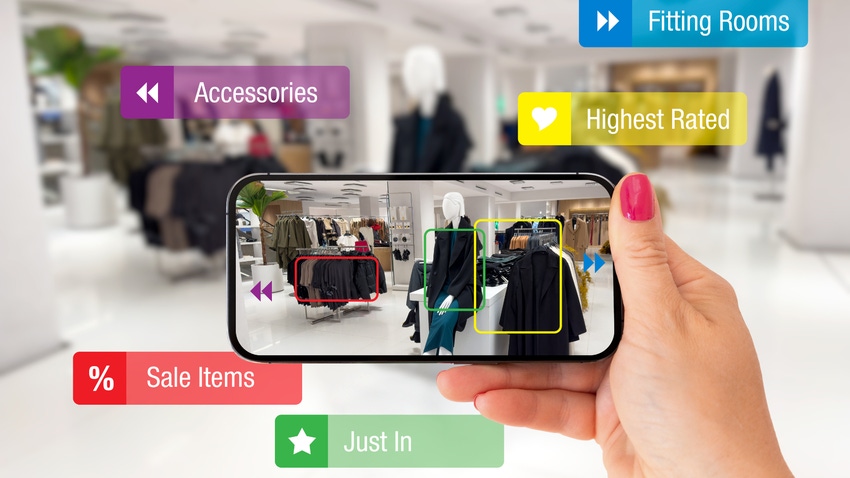Retail Is Becoming a Battleground for Generative AI
Google and Microsoft introduced generative AI tools for retailers. But challenges remain for industry adoption

At a Glance
- Seven out of 10 retailers plan on implementing generative AI in 2024, according to a Google Cloud survey.
- Google and Microsoft unveiled domain-specific generative AI tools for retailers in customer service and other areas.
Expect generative AI to be a major highlight at this week’s National Retail Federation (NRF) 2024 conference. There will be plenty of cutting-edge tools for virtual assistants, retail operations and analytics.
According to a Google Cloud survey, about 81% of retail decision makers have expressed urgency to adopt generative AI and 72% said they would implement this technology in 2024. About 78% of the respondents noted that this technology will impact their industry this year and 95% believed that it would have an impact on customer experience.
“Retail is an incredible category for generative AI as it has some of the richest consumer data available, as well as a standard interface of ‘search’ that works incredibly well with the conversational nature of GPT-like interfaces,” said Himanshu Jain, who is the general manager and vice president of product at CommerceIQ.
Ahead of the NRF conference, Google and Microsoft have already announced rollouts of their new generative AI offerings. It is another sign of how the competition for this critical technology is heating up.
Google's offerings
Google has introduced five generative AI tools for retailers. Starting with AI-powered virtual assistants, Google will offer retailers the opportunity to integrate customized versions of these assistants into their websites and mobile apps. These assistants are tailored to customer preferences such as color choices, budget constraints, accessory needs and venue types.
For example, a virtual assistant could help a customer prepare for a hiking trip in the Rockies. The shopper might ask what is needed for suitable hiking gear for a reasonable cost. The AI can then suggest hiking boots, weather-resistant clothing, a backpack, a compass and a hydration pack.
Next there is Vertex AI Search, a tool allowing retailers to tailor their catalog searches and user search patterns. This customization can lead to more relevant search results, potentially increasing sales conversions.
Then there is the customer service solution. It integrates CRMs with generative AI to enable personalized product recommendations, appointment scheduling, and order status checks. It also provides tools for employees, such as summarizing customer interactions and generating responses based on internal data.
There is also the catalog enrichment tool, which uses generative AI to automate the creation of product descriptions and metadata that are tuned for search engine optimization (SEO). This can be a tedious process. But generative AI can streamline this at scale.
Finally, the Distributed Cloud Edge is a hardware and software solution for physical store locations. It allows for accessing AI applications where there is little or no internet access.
Victoria's Secret is an early adopter of Google’s retail generative AI solutions. The company will use the virtual assistant and search capabilities. It is also considering employing generative AI in areas like supply chain management, personalized associate onboarding and training programs.
Microsoft jumps in, too
Microsoft has also announced a comprehensive suite of generative AI applications for retailers. At the core of this is a set of new copilot templates on the Azure OpenAI Service. With this, retailers can build their own personalized systems for virtual assistants and store operations.
For example, suppose a customer is planning on starting a vegetable garden in their backyard. They can visit a home improvement store’s website and type, “I’m starting my first vegetable garden and need advice on what to plant and how to care for it.” The copilot will base its answer on the integration with the retailer’s product databases and relevant information it has on the customer.
Microsoft has another copilot that helps with store operations. Employees can use it to get details and insights about trends, product catalogs, store procedures and HR policies. There is also voice-enabled task creation and assignments.
Lastly, Microsoft has built retail capabilities into Fabric, which is an analytics platform, as well as Dynamics 365 Customer Insights.
The Challenges
Generative AI does pose obstacles for retailers. The large-language models (LLMs) are prone to hallucination, which means that they can generate content that is false or misleading. A major reason for this is that the training data may be sparse or inaccurate. But the LLM will often attempt to make connections or inferences anyway. Regardless, hallucinations can lead to bad customer experiences and damage to a brand.
Grounding an LLM in clean datasets is a way to mitigate the problem. But this is far from easy. This is especially the case with smaller retailers, which usually do not have the expertise to do so. This is why human evaluation of AI-generated content is important. In fact, Google has this process integrated into its generative AI retail tools.
Read more about:
ChatGPT / Generative AIAbout the Author(s)
You May Also Like


.jpg?width=700&auto=webp&quality=80&disable=upscale)
.jpg?width=700&auto=webp&quality=80&disable=upscale)
.jpg?width=700&auto=webp&quality=80&disable=upscale)
.jpg?width=300&auto=webp&quality=80&disable=upscale)
.jpg?width=300&auto=webp&quality=80&disable=upscale)
.jpg?width=300&auto=webp&quality=80&disable=upscale)
.jpg?width=300&auto=webp&quality=80&disable=upscale)
.jpg?width=300&auto=webp&quality=80&disable=upscale)